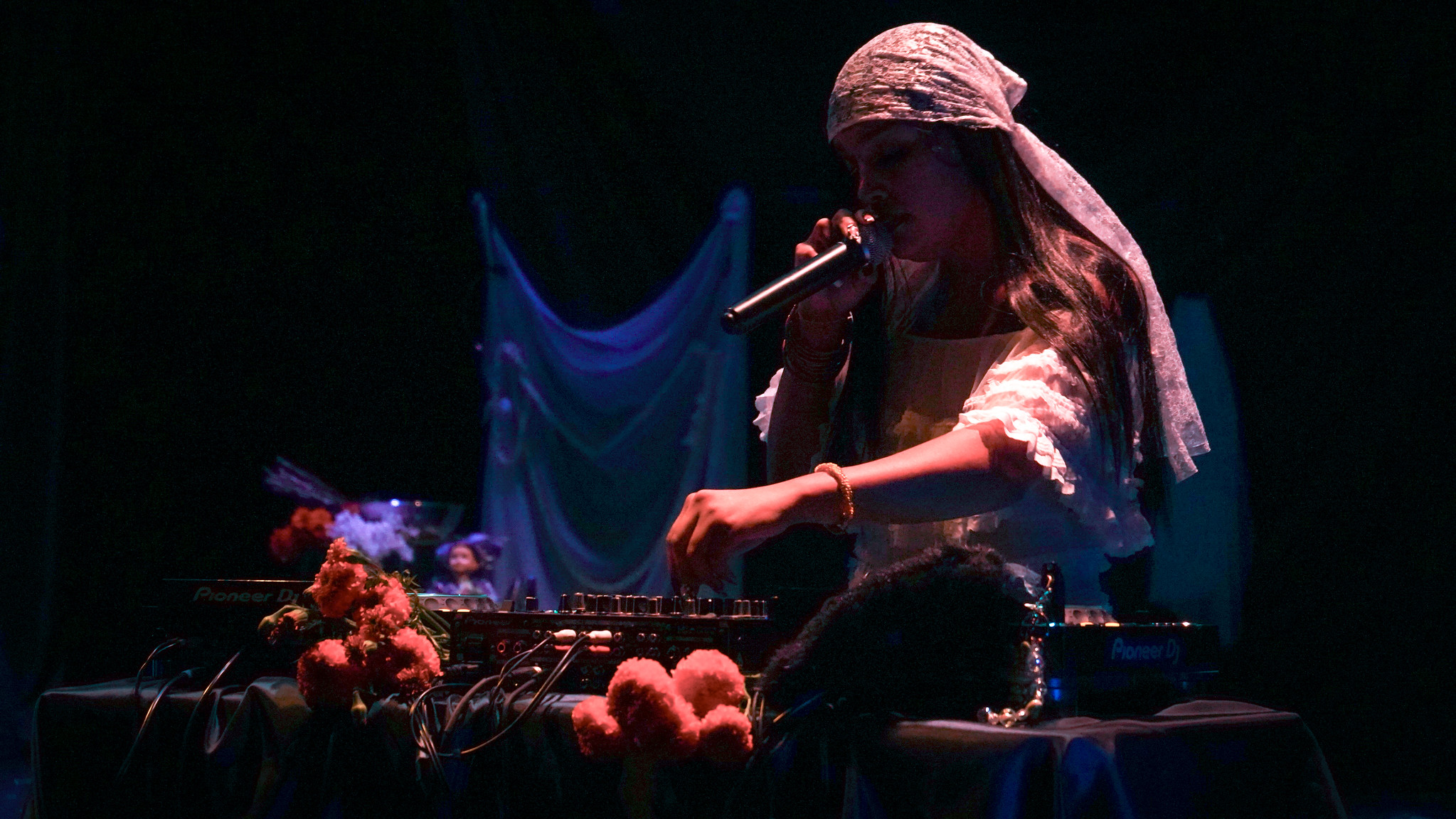So, next week my company and i will perform our new work “…our daily bread” that is this exploration of food and cultural identity. Forgive me if what I am about to throw down reads a bit like a high school essay that would begin with “what I learned……”. But what has been the deepest revelation for me in this creative process which has included talking to and eating with my family, is that the part of my food identity that I feel most attached to and sense of longing for is the part of me that I haven’t expressed in over 20 years. I have been a vegetarian for about 25 years, of which I have had brief periods during which I ate fish and eggs occassionally and am vegan most of the time.
I became vegetarian initially not for political reasons but because I never really liked meat. As a teenager I would try to eat hamburgers but I couldn’t eat them unless they were practically burnt and I couldn’t look at them too long, etc. It just became too much work so I just gave up meat altogether. As I got older and came in contact with more vegetarians, it was assumed among the vegetarians I knew that I made a political choice by not eating meat. Long story short, in the process of making this piece and in connecting to the food of my cultural roots, I realize how much I miss the stories, smells and rituals that are part of a food legacy that includes meat. I am not saying that only food that includes meat has “soul” but there is a lack of self consciousness that accompanies the food legacy I grew up with and that I am longing for most and it included meat. There is (and I am making a generalization) a self awareness or self consciousness of calling oneself “vegan” or “vegetarian” that doesn’t seem to exist with those who do not identify themselves by whether they eat meat or not at least not in my family and extended family.
I had the opportunity to watch my mother make seafood gumbo, something she used to make for my birthday almost every year until I stopped eating seafood in my early 20s. Watching her talk about gumbo and the stories that she told in the process brought on a longing for tradition, connection to my ancestors that I didn’t even know I was missing. I ate some gumbo that night, even though I don’t eat seafood anymore because to not eat it that night when she was conjuring ancestral memories would have been sacreligious. That gumbo was damn good and everyone present who had some felt the spirit!
I doubt seriously that I will ever eat meat or seafood again as part of my regular diet, but I could be open to it on the rare occasion if it’s organic, if the spirit is right and it allows me a moment of communion with my ancestors.
Speaking of food of my ancestors, my brother friend Bryant Terry who is warrior chef and food activist has conjured a cook book titled, “Vegan Soul Kitchen” in which he re-imagines many of our ancestral food recipes without animal products. He will sit on a panel with me after the show on Saturday, March 7 at which time he will also sign copies of this wonderful new cookbook.
Lastly, in the spirit of African American food traditions that were often created or inspired by the times, I have created a stew that I am calling, “Recession Root Stew”. It is vegan, has a little bit of everything and can feed a whole mess of folks especially in hard times. Please enjoy!
Amara’s Recession Root Stew
Suggestion: since we are in hard times, make sure the folks you are making it for all bring at least one of the ingredients.
2-3 parsnips
2-3 medium carrots
2 large onions chopped fine
1 head of garlic chopped fine
2 large garnet sweet potatoes
2 yellow squash
1 bunch cilantro
1 bunch dino kale
2 tbsp. chopped fresh ginger
3-4 cups of water or vegetable stock
1 can of coconut milk
sea salt to taste
tbsp. curry powder
coconut or safflower oil
additional optional ingredients:
1 can of gabanzo beans
2 cups broccoli
Chop onions, garlic, ginger, cilantro
cover the bottom of a good stock pot with coconut or safflower oil and sautee the onions, garlic, ginger, salt and cilantro for 5 minutes.
chop parsnips, sweet potatoes, carrots and squash. Add to the pot and continue to stir over medium heat for 10 minutes stirring constantly. Add 3 cups of water, add more salt to taste, curry powder and allow to simmer for 20 minutes.
Add dino kale and coconut milk and continue to simmer for approx. 15-20 minutes. Make sure coconut milk does not boil.
Serve with rice, quinoa or grain of your choice with your hungry folks
Share This!
More Good Stuff
Ātl Verde: "Ātl," the Nahuatl word for water, symbolizing the river flowing through my evolution—connecting past, present, and future. This piece reflects my journey as
Unsettled/Soiled Group is a group of East, Southeast, and South Asian diasporic movers, makers, and settlers on Ramaytush and Chochenyo Ohlone land. Unsettled/Soiled Group is led by June Yuen Ting, one of CounterPulse's 2022 ARC Performing Diaspora artists and will debut Dwelling for Unsettling alongside VERA!'s Try, Hye!, Thursday through Saturday, December 8-10 & 15-17, 2022
VERA! (they/them) is a queer Armenian American drag king, dancer, and community activist. They are one of CounterPulse's 2022 ARC Performing Diaspora artists and will debut Try, Hye! alongside Unsettled/Soiled Group's Dwelling for Unsettling, Thursday through Saturday, December 8-10 & 15-17, 2022




That recipe looks delicious! I definitely think that vegetarian dishes are the way to go during a tough economy – cheaper and likely better for you as well. Good stuff here!
It’s been such an honor and delight to watch Amara and her dancers develop their work here in the studio. But the food just pushes it over the top! If the food they’ve been whipping up in the little kitchen at CounterPULSE is any indication, then this recipe (and all the ones in Bryant’s book) are definitely worth trying. Yum!
[…] Find Amara’s Recession Root Stew recipe, inspired by the times and in the spirit of African American food traditions, right here. […]
[…] the way, I found this recipe for a ‘Recession Root Stew‘ by Amara that sounds great. I’ll have to try it one of these […]
[…] Find Amara’s Recession Root Stew recipe, inspired by the times and in the spirit of African American food traditions, right here. […]
[…] Jamaican-style Coconut Cornbread, which features buttermilk and shredded coconut, accompanied her Recession Roots Stew. A fellow dance student, Claire Bobrow, had whipped up a pile of crepes in honor of Fat Tuesday and […]